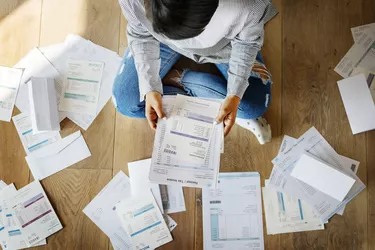
If you're like most of us, you cash or deposit your payroll check very shortly after you get it. Or, better yet, you have direct deposit and the money just shows up in your account. So it may come as a surprise that every once in a while, someone loses or hangs onto a payroll check without cashing it, but it does happen.
Tip
Typically, it is best to cash a payroll check within six months of receiving it.
Video of the Day
Payroll Checks General Practices
In most cases, if the check is six months old or less, your bank or credit union should cash it. In fact, it's the law. It's part of the Uniform Commercial Code, which is a collection of laws that govern financial contracts. Some banks may honor an older, "stale" check but they don't have to.
Video of the Day
Strictly speaking, UCC laws are neither federal nor state. They're a collection of universal laws that states have mutually agreed to abide by. This way companies in different states can conduct business with each other and not have to worry that a state with different laws will affect their transactions and contracts.
While you might not think of a check as a financial contract, it is. UCC laws call checks "negotiable instruments." They are legal contracts between the person or company who wrote the check to pay the person who signs it and presents it to their bank.
Checks That Say “Void After ... ”
Sometimes companies put check expiration dates on their payroll checks. Often it's "Void After 90 days." This practice helps the check issuer avoid long-outstanding checks that can skew their books.
However, unless the company issuing the check gave specific instructions to their bank not to honor checks that are more than 90 days old, it should go right through. Sometimes banks don't even pay attention to the dates on checks. Even if you run up against a situation where the issuer's bank rejects your payroll check, know that the law is on your side. It may be a major hassle to get it cashed but you should prevail.
That banks don't often pay attention to when checks are dated is something to keep in mind if you give someone a postdated check. Personal check cashing practices vary but know that it's possible the person you wrote that check to could cash it before the date you wrote on it.
Long Lost Checks
Let's say you used your paycheck as a bookmark. You finish the book and with that forgotten check tucked inside, you donate the book to your local library. Farfetched perhaps, but the point is, that check is now gone forever.
Or is it? At this point, you could contact the company who issued the check, explain the situation and ask them to void the old check and give you a new one. If you do nothing and a lot of time passes, your state's escheat laws will kick in.
Escheat laws vary from state to state, but usually in five years or so, uncashed payroll checks have to be turned over to the state. Some states may try to contact you and some not. Your best bet is to be proactive about getting your money.
Finding Lost Money
To find funds associated with a very old lost payroll check, go to the National Association of Unclaimed Property Administrators website and click on your state. You'll be sent to your state's unclaimed property site. From there follow the prompts.
You'll have to fill in your name and address. You might need to fill in an old address if you've moved. Each state's unclaimed property website is a little different but most end up providing a PDF form to fill out and mail in. The reason for this is that you'll need to send documentation with the form to prove that you are the person who's entitled to the unclaimed money.
As you've probably picked up on by now, it's a lot easier to just cash your payroll check when you get it.